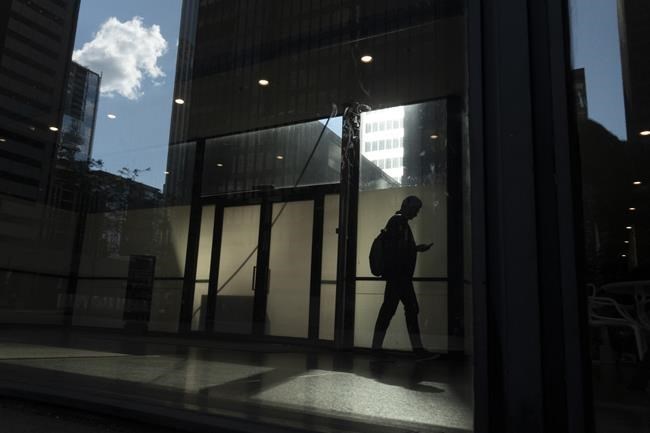TORONTO — A new survey suggests many Canadians don't plan on using all their vacation before the end of the year.
The poll, conducted by Maru Public Opinion for ADP Canada, found 29 per cent of respondents say they'll take all their vacation time in 2022.
While it's an improvement from 2021, when 27 per cent of those asked planned to use all their annual leave, it remains well below pre-pandemic levels.
The survey also found many Canadians are putting in extra hours at work before taking a holiday — what ADP Canada calls a "time-off tax."
Nearly two-thirds of those surveyed say they've worked extra time before or after a vacation, with respondents clocking an average of 20 additional hours before and after a one-week break.
This was an improvement from last year, when the majority of workers polled by ADP Canada said they worked an extra hours 21 hours before and after a vacation.
Heather Haslam, vice-president of marketing with ADP Canada, said the survey's findings indicate a "shift in Canadian workers taking back their time to disconnect from work."
"It is promising to see a decrease in amounts of time-off tax and also that Canadians are taking more of their allocated time off," she said in a statement on Wednesday.
Still, vacation levels continue to fall below pre-pandemic levels, Haslam said, noting that the survey's findings show there is still work to do to ensure employees disconnect and rest.
"Organizations that can help workers prioritize healthy work life habits may contribute to increasing engagement and employee retention levels," she said. "2023 marks an opportunity for employers to equip employees for wellness by encouraging workers to recharge and disconnect."
The online poll of 811 Canadian workers was conducted in late November.
The polling industry's professional body, the Canadian Research Insights Council, says online surveys cannot be assigned a margin of error because they do not randomly sample the population.
This report by The Canadian Press was first published Dec. 14, 2022.
The Canadian Press




